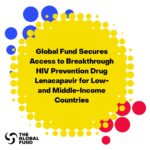By Aghan Daniel I aghan@meshascience.org
Journalists have been called upon to interrogate the intentions of rich countries about their clamour for climate justice.
While addressing a science media café organised by ActionAid International and the Media for Environment, Science, Health and Agriculture (MESHA), Susan Otieno, who has dedicated her life fighting for the under-privileged, told journalists to hold governments accountable but most importantly the countries in the North and also the major polluters in their quest for climate finance.
“A political solution is need to unravel climate crisis hence the need to articulate power relations, elites’ control and vested interests which take centre stage,” she said.
She added that the Africa Group of Negotiators should not leave these concerns out of their discussions and negotiations. Every action taken should adopt overall conclusion which is two-fold in that justice for the underprivileged and not the powerful and mighty as well as research and studies that are Africa-led to influence the knowledge and content that speaks to Africa’s context.

In vouching for an African led and centred intervention, the expert who is the Executive Director of ActionAid Kenya noted that agroecology has been viewed as an opportunity for transitioning Africa from being food insecure to food sustainable agricultural practices which could lead us to improve food security, reduced poverty and improve resilience to climate change.
African countries have made a bold step and are explicitly adopting agroecology in their national agricultural frameworks as a solution for transforming the agricultural and food systems as we work towards the commitments of the United Nations’ Sustainable Development Goals (SDGs) and the African Union’s Agenda 2063 more effectively.
While addressing the journalists from Africa, Asia and Latin America, Teresa Anderson, ActionAid International’s Global Lead on Climate Justice said that putting social justice considerations at the heart of climate action is key in addressing issues of climate justice, in a number of ways such as on equity where wealthy countries, corporations, people of the Global North have been industrialising and polluting for a century or more.
She observed that greenhouse gases in the atmosphere today include those that were released by Global North countries from as far as 20 to 150 years ago. Global South countries, she noted, have only recently begun to industrialise and release these gases in nearly negligible quantities. “Journalists must help the society to look at who is responsible for causing climate change,” she said.
According to Paula Castro, the organisation’s Climate Justice Policy Advisor, warned that the numbers of climate victims are chilling. She gave a case in point where about 2 billion people worldwide don’t have access to safe drinking water today and half of the world’s population could be living in areas facing water scarcity by as early as 2025.
Out of 258 million people facing high levels of acute food insecurity, over two thirds — 174 million — are there because of climate and conflict.
Between 2000 and 2022, 10 countries that experienced the highest number extreme weather events saw malnutrition jump from 21 million people to 48 million during the last six years of that period.
”It has been estimated that, by 2030, climate change could push more than 120 million more people into poverty,” she said. Experts warn that debt is a driver of climate crisis and rich countries are on record as eager to give loans instead of grants in the fight against climate change in the developing world.

“It is disheartening to hear that the West are pushing poor countries to accept climate crisis enablers such as private funding and carbon trade as sources of keeping climate crisis at bay,” said Rishika Pardikar, a seasoned climate change journalist from India.
The science media café, Global South Media Science Café – The Finance Flows Failing Our Planet concluded that there is a huge disconnect between the West and the South given that financial priorities set by the west continuously favour the former to the detriment of the latter.









